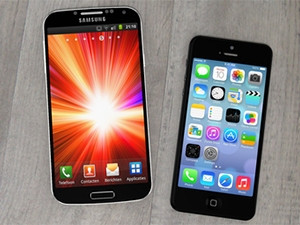
Global smartphone shipments grew 12% annually to hit a record 1.4 billion units in 2015, but 2016 is unlikely to see matching figures.
This is according to the latest research from Strategy Analytics, which shows Samsung maintained its first position and captured 22% of global smartphone market share.
Global smartphone shipments grew 6% from 380.1 million units in the fourth quarter of 2014 to 404.5 million in Q4 2015. Despite strong overall 2015 numbers, the majority of smartphone makers warn 2016 could see tough times to come, with Q4 2015 showing a preview of that.
"This quarter was the smartphone industry's slowest growth rate of all time. Smartphone growth is slowing due to increasing penetration maturity in major markets like China and consumer worries about the future of the world economy," according to Strategy Analytics director, Linda Sui.
Samsung is still winning the smartphone race. The South Korean company shipped 81.3 million smartphones worldwide in Q4 2015, growing an above-average 9% from a year ago.
"This was Samsung's fastest growth rate for almost two years and it helped Samsung to stay ahead of Apple and maintain first position with 20% share for the quarter and 22% share for the full year," says Neil Mawston, executive director at Strategy Analytics.
"Samsung is widely rumoured to be launching its new Galaxy S7 flagship model in the coming weeks and this should enable Samsung to consolidate its smartphone leadership," says Mawston.
However, the tech giant today said "broadly weaker IT demand will make it difficult to maintain 2016 profits at the level of the previous year's". Samsung admitted this in a statement accompanying its fourth-quarter results, adding "challenging business conditions" would remain for the current quarter and last throughout the first half of this year.
Meanwhile, Apple shipped 74.8 million smartphones worldwide and captured 18% market share in the fourth quarter of 2015, barely changed from a year earlier when it delivered 74.5 million units. Apple only claimed 16% of overall market share for the full year.
The iPhone maker this week forecast its first revenue drop in 13 years and reported the slowest increase in iPhone shipments as the critical Chinese market showed signs of weakening. Reuters reported Apple sold 74.8 million iPhones in its fiscal first quarter, ended 26 December ? the first full quarter of sales of the iPhone 6S and 6S Plus. The 0.4% growth in shipments was the lowest since the product was launched in 2007.
"Apple's iPhone growth is peaking. Apple will have to expand into new markets like India or Nigeria if it wants to reignite iPhone growth in 2016," says Mawston.
Smaller players fight it out
Huawei maintained third position, with 8% global smartphone market share in Q4 2015, up from 6% a year ago.
"Huawei joined an elite club and shipped over 100 million smartphones in a year for the first time during 2015. It was an impressive performance. However, there are signs that Huawei's growth is starting to slow. Its annual growth rate of 35% halved sequentially from 62% in the prior quarter, as major vendors like Xiaomi began to fight back in core markets of Asia," according to Woody Oh, director at Strategy Analytics.
Lenovo-Motorola held on to fourth position, with 5% global smartphone market share in Q4 2015, but its shipment growth rate declined 18% annually.
"The merger of Lenovo and Motorola has so far not been a success and the two firms' combined smartphone shipments today are lower than when they first joined together in 2014," says Sui.
Xiaomi maintained fifth place, with 5% market share in Q4 2015.
"Xiaomi is fighting back in China and India with improved 4G smartphone designs and once again placing competitive pressure on rivals like Huawei, LG, ZTE and Micromax," adds Sui.
More troubles on horizon
Strand Consult's recent 2016 predictions agree this will likely be a tough year for smartphone-makers but an especially bad year for Microsoft's smartphone sales.
"[The smartphone market] is a difficult market where the list of members of the Dead Poets Society gets longer. The club already counts Ericsson, Nokia, Motorola as members and the next candidates are BlackBerry, HTC, and Microsoft," according to Strand Consult's report.
"It is only Microsoft's brand that keeps its flagship phone alive. The company has greater challenges than they admit, and in 2016 it will be hard to imagine them achieving a market position that brings them out of the niche category."
Even chipmaker Qualcomm has forecast current-quarter profit that falls below analysts' expectations as demand weakens for its chips used in mobile devices.
The company, whose customers include Apple, said it expected its mobile chip shipments to fall by 16% to 25% in the second quarter from a year earlier. Qualcomm also expects 3G and 4G device shipments to decline by 4% to 14%, hurting its licensing revenue.
"2016 will be tough year for device-makers, even those who are successful today. The industry lacks a game-changer, and it is hard to see where it will come from and how it will contribute," concludes Strand Consult.
Share